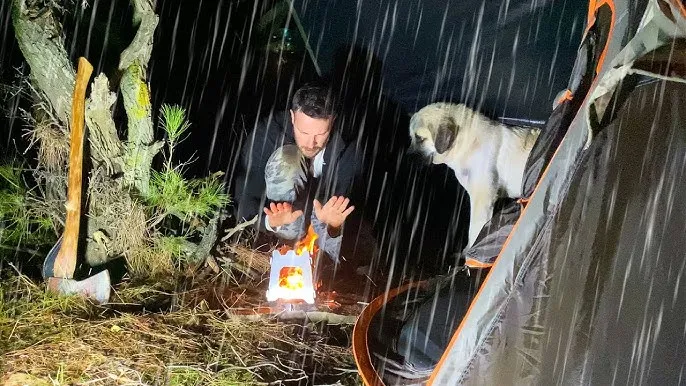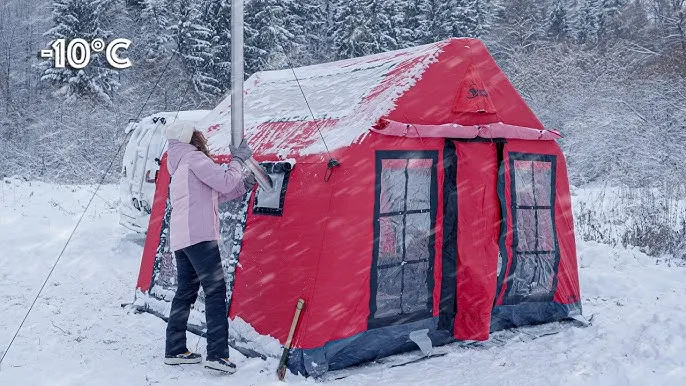A Winter’s Trial and a Cabin’s Warm Embrace
It was a cold, overcast morning when I set out on a solo drive through the forest. I had planned to travel about fifteen miles deep into the woods, hoping to spend a quiet weekend surrounded by nature. The snow had been falling steadily for hours, turning the pine trees into towering white sculptures and muting every sound except the steady crunch of my tires on the trail.

About halfway through the journey, the snowfall turned into a blizzard. Visibility dropped to almost nothing, and the wind howled through the trees with a force that made the forest feel wild and unforgiving. Focused on the road, I didn’t realize that I had veered off the main path and onto a frozen patch of river. Before I could react, the ice cracked beneath the weight of the snowmobile, and I plunged into the frigid water.

The shock of the freezing river took my breath away. Somehow, I managed to scramble out, soaked to the bone, dragging my dead snowmobile onto the snowy bank. The situation was dire—no working vehicle, temperatures dropping fast, and darkness only a few hours away.
Then, as if nature was offering me a second chance, I saw it: a small wooden cabin nestled between the trees. Limping and shivering, I made my way toward it, barely believing my luck. The door creaked open easily, and inside was silence—but also safety. A small cast-iron stove stood in the corner, and next to it, a dry stack of firewood. That cabin, with its stillness and potential warmth, was the difference between life and death.

Wasting no time, I grabbed an axe from the wall, split more firewood, and set to work building a fire. As the flames caught and began to crackle, the cabin filled with warmth, and so did my spirit. I looked around and tidied up the place—sweeping away the snow I had tracked in, setting the furniture straight, and hanging up my wet clothes to dry.

Next, I scooped up fresh, clean snow and melted it in a pot over the fire. Once it was boiling, I brewed a strong cup of tea that seemed to reach straight into my bones. Using what little food I had in my emergency pack, I cooked a simple hot meal—enough to quiet the rumble in my stomach and help my body recover from the shock.
With the fire roaring and my belly full, I finally allowed myself to rest. I curled up under a wool blanket I found in the cabin, listening to the wind outside batter the wooden walls. But inside, I was warm, safe, and deeply grateful.

The next morning, the storm had passed. Pale winter sunlight poured in through the frost-covered window. I rose early, stepped outside, and began splitting more wood—enough to repay the kindness of the shelter that had saved me. I melted more snow for tea and stood by the fire, holding the hot mug with both hands, staring out into the quiet forest.

I knew it was time to leave, to head back and tell this story not as a tragedy, but as a testament to survival and nature’s hidden mercy. As I stepped out of the cabin, I left a small note on the table: “To the next traveler—this place saved me. Keep it warm. Keep it safe.”



